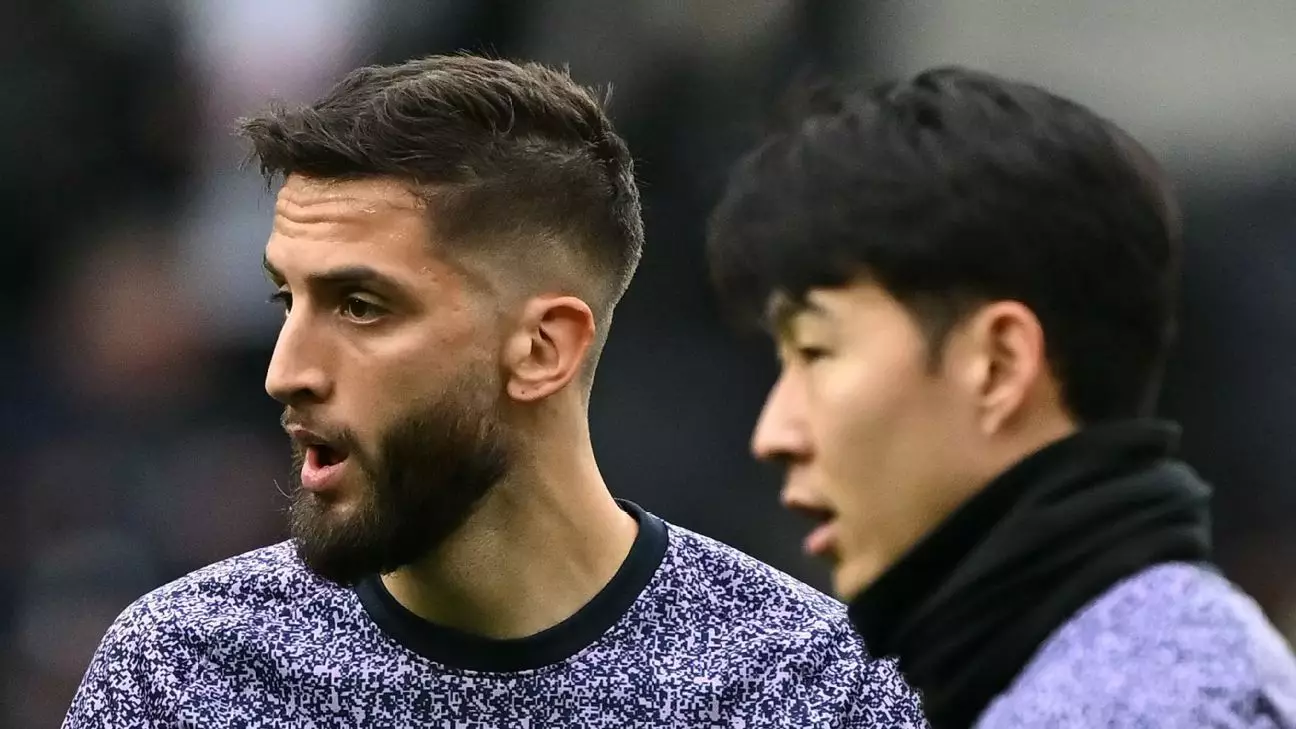Rodrigo Bentancur, a prominent midfielder for Tottenham Hotspur, recently found himself embroiled in controversy following comments made during an interview in Uruguay. While discussing team dynamics with the host of the show “Por La Camiseta,” Bentancur’s attempt at levity turned into a moment of insensitivity. When asked about Manchester United’s Son Heung-Min’s shirt, he remarked, “It could be Sonny’s cousin too as they all look the same.” This innocent yet careless comment was met with immediate backlash and led to a severe penalty imposed by the Football Association (FA): a seven-game suspension and a £100,000 fine.
While many may view Bentancur’s statement as a mere blunder, the ramifications of his comments highlight broader societal issues regarding race and representation. The urgency for individuals in public positions to navigate the complexities of cultural sensitivities with grace has never been more paramount. This incident is not just about Bentancur—it’s a reflection of ongoing challenges within professional sports and society as a whole.
Ange Postecoglou, the manager of Tottenham, defended Bentancur, emphasizing the importance of learning from one’s mistakes. He articulated a philosophical approach towards such missteps, suggesting that rather than condemning those who err, society should prioritize education and growth. According to Postecoglou, the narrative surrounding Bentancur should not solely dwell on punishment but also acknowledge the potential for personal development.
By stating that he has made larger mistakes in his own life, Postecoglou underscored the human capacity for growth. His call for empathy and understanding resonates deeply, especially in the current climate where social media often transforms mistakes into public executions. The appeal Spurs have filed indicates their belief in the need for a balanced approach to both justice and rehabilitation, pushing against a culture that often favors retribution over redemption.
The FA’s decision to impose a penalty on Bentancur reflects the organization’s commitment to combatting racism within the sport. However, its execution raises questions about fairness and the effectiveness of such bans. It’s essential to view the disciplinary measures not just as punitive actions but also as learning opportunities for athletes. While the rules stipulate a minimum suspension, it begs the inquiry: Is a seven-game ban conducive to real change, or does it merely serve as a harsh consequence that may not promote a genuine understanding of the issues at hand?
The impact of Bentancur’s suspension is felt deeper within Spurs’ roster as well. Missing key players complicates the team dynamics, especially with upcoming matches against formidable opponents in the Premier League. This highlights the interconnectedness of player behavior, team performance, and broader societal reactions to racism in sports.
This incident serves as a reminder of the urgent work that remains in addressing racism not just in football, but across all professional sports. Athletes are in the spotlight and are responsible for representing a variety of audiences; therefore, a robust educational framework surrounding cultural sensitivity must be developed. This can ensure that players are not only aware of the potential implications of their words but are also equipped with the tools to navigate multi-cultural environments effectively.
Spanish football, much like other sectors of society, must evolve from a punitive model towards one that embraces education and growth. Rodrigo Bentancur’s situation should catalyze a broader discussion about how society deals with public figures who misstep. By placing an emphasis on learning, rather than condemnation, the hope is to pave a way for more substantive dialogue and, ultimately, progress. Through this lens, the path that emerges may foster a culture of understanding and mutual respect, lifting not only the individual players but the entire sport into a more positive and inclusive future.

Leave a Reply